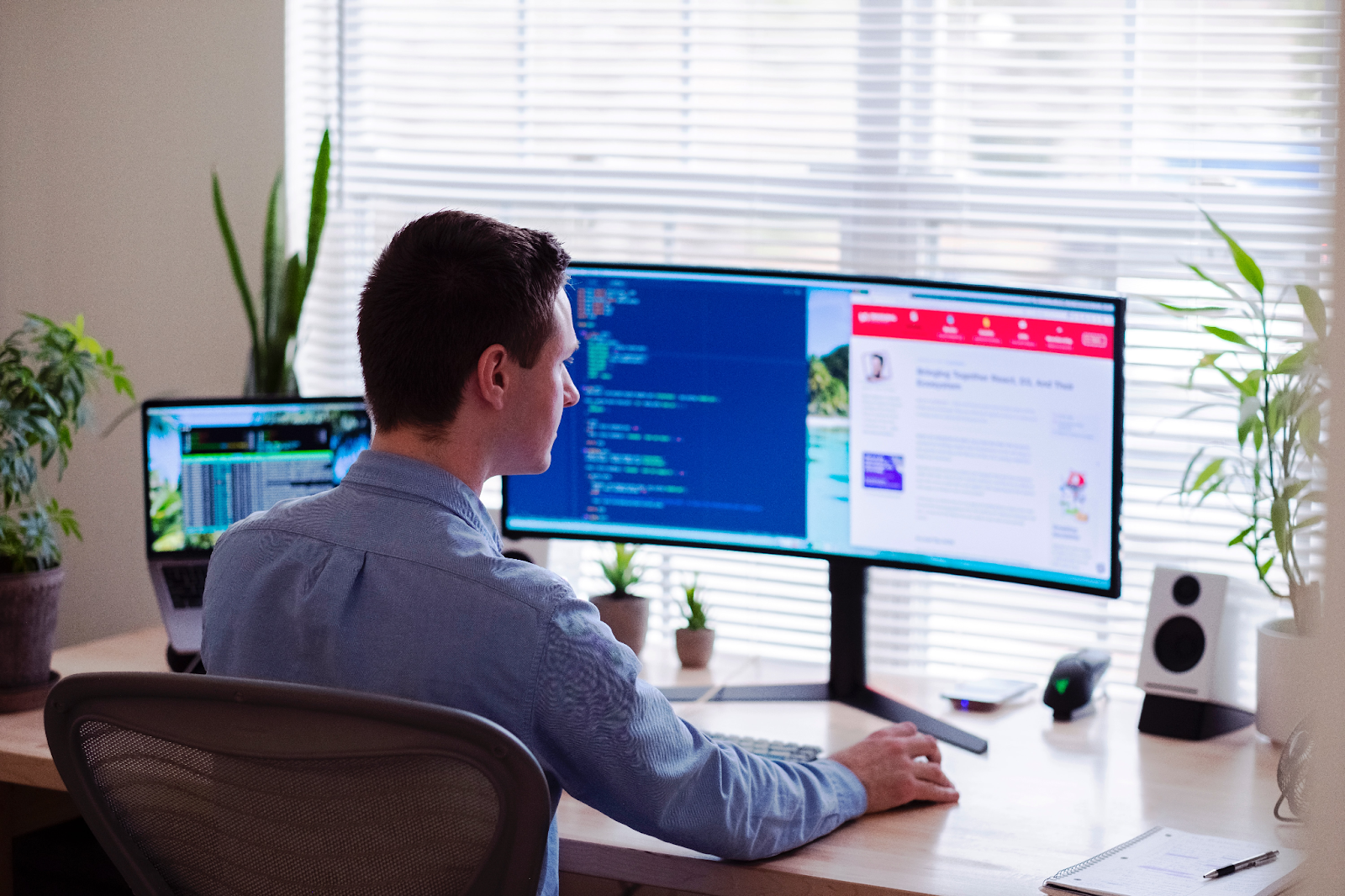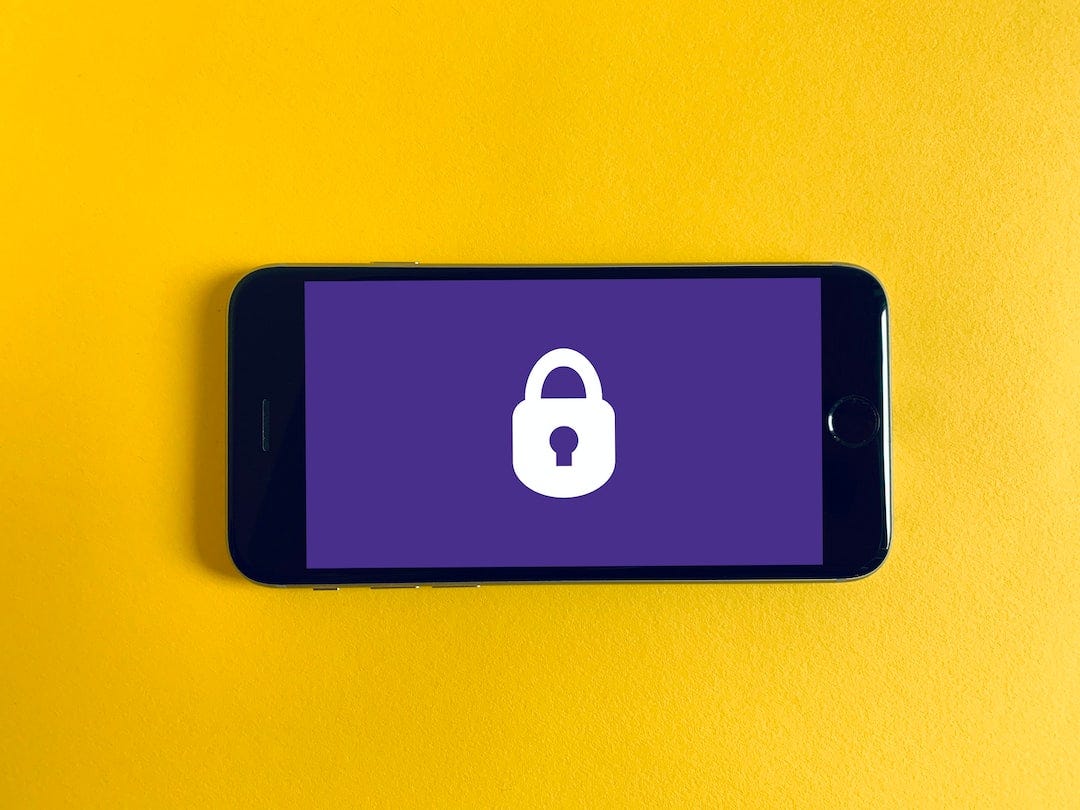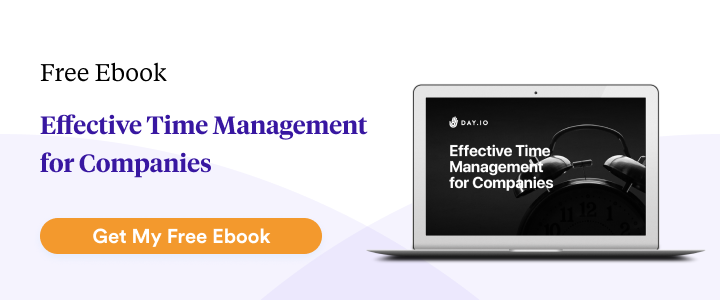The internet is a vast landscape – and the world of business has never been more interconnected. With so many opportunities at your fingertips, you need to ensure that your company stays on top of things.
In today’s digital world, every organization should monitor its employees’ online activity. Monitoring software can help you monitor how they are spending their time online and bring you better results. It can help you enhance employee productivity, reduce legal liability and even improve your bottom line.
In this blog post, we’ll give you some tips for using monitoring software, as well as techniques that will help ensure that your company’s data is protected from malicious threats.
What Is Corporate Monitoring Software and What Does It Do?
Corporate monitoring software is used to track the activity of individual employees on computers, tablets, and smartphones. This includes everything from web browsing histories to social media posts — even emails sent outside your organization’s network.
Using this software allows managers to make sure that company resources are used effectively while also protecting sensitive data against malicious threats like malware attacks.

Why Should You Use a Corporate Monitoring Solution?
As technology keeps evolving, so do the threats that businesses face. When it comes to protecting your company’s intellectual property and sensitive information – knowing exactly what is being said about you online can be incredibly useful for both offensive and defensive purposes.
When deciding whether your company should use corporate monitoring software, it’s important to keep its potential benefits in mind. These include:
Helping Identify Security Risks
Monitoring software can help you identify security risks by giving you insights into how employees use the internet — and what information they’re sharing online. This makes it easier for you to find out who might leak company secrets, customer data, or even publish confidential company information on social media.
Making Sure That Employees Aren’t Wasting Time on Non-work Related Activities
Monitoring software helps managers ensure employees aren’t spending more time on Facebook than they are at their desks.
In an increasingly competitive marketplace, your company needs to know that its workers are being productive – and it’s a good idea to have a way of measuring just how much work is getting done during the workday.
Improved Business Intelligence and Decision Making
Corporate monitoring software can help improve your company’s business intelligence by helping you discover more about your customers and competitors.
It can help managers identify the best times to contact clients or determine when someone uses a competitor’s product instead of their own. When businesses make better decisions based on this kind of information, it helps everyone in the long run – employees included.
Legal Protection
We cannot stress how important it is to make sure that your company is following all of the rules and regulations regarding data security – which means knowing exactly what information is being shared with third parties. Monitoring software can help give companies peace of mind by seeing to it that they are doing everything by the book.

How to Choose the Right Company for Your Needs
When it comes to choosing the right company, here are a few things to consider:
Price
When you’re looking for a good monitoring software company, one of the first things to consider is how much they cost.
The price will vary depending on what features your company is looking for, as well as the number of users that will be using the service. It’s important to make sure that whatever package you choose is right for your business.
Features
Different companies offer different features, so you should always research before committing to a particular provider.
For example, long-term monitoring is often considered the best way to protect company data – but it might not be ideal if you need instant access to information or want employees’ activity reports within seconds of logging off.
Read the fine print before you make a choice — otherwise, you might end up with an inadequate product that doesn’t meet your business needs.
Customer Service
Be sure to consider the company’s customer service department. Monitoring software isn’t something you can just pick up and use right away – so it helps if your provider offers help with training or setup, as well as tech support for any issues that come up during installation.
Their Experience in Your Industry
You should also consider the company’s experience with your industry. If you are in a highly regulated or high-security environment, for example, it might be better to choose a company that has already worked with businesses like yours before.
Integration With Your Existing Systems
You will also want to consider how your new monitoring software will integrate with the other tools you use in your business. For example, suppose you already have a time-tracking system, like Day.io, or sales lead database. In that case, it can be helpful to find out whether the company offers an API that makes integration easier.

What Features Do Corporate Monitoring Companies Offer?
There are a variety of different features that corporate monitoring companies offer. Some of the most popular include:
Keystroke logging
This feature allows employers to see every keystroke that employees make on their computers.
This can be useful for tracking employee productivity, as well as for catching any inappropriate or confidential information that may be typed into company computers.
Screenshot capture
This feature takes periodic screenshots of what is happening on an employee’s screen. This can help employers to monitor employee activity and catch any potential security breaches, even if they aren’t communicated through words.
Webcam monitoring
In some cases, employers may also choose to monitor employee activity through their webcam.
This can help catch real-time security breaches and also track real-time productivity.
Email and internet usage tracking
This allows employers to see how employees are using company email and the internet.
GPS tracking
This feature allows employers to track the location of employees in real-time.
This can be useful for catching any potential security breaches or for monitoring employee productivity as you can see the physical location of the employee.
This is a more intrusive form of employee monitoring so it may not be relevant for all companies. However if you work in a high risk industry, this may be an option to consider.
For example, if you find that the location of an employee’s laptop is not at the office, you are immediately on edge and suspicious of a security breach. This could give you the time to remotely wipe out sensitive information on the employee’s laptop to prevent it from falling into the wrong hands.

Call recording
This is a very useful feature which informs employers of the contents of phone calls made by employees.
This could be an ideal form of monitoring for customer service professionals and cold callers as the majority of their work is performed over the phone.
App usage tracking
Tracking app usage to see which applications are being used by employees on their computers can be another very useful.
This is an additional layer of protection which can ensure that your systems remain secure and only suitable apps are downloaded on company devices.
Employers should carefully consider which features they need in a corporate monitoring solution before selecting a provider.
Some providers offer all of the above features, while others only offer a subset. It is important to select a provider that offers the right mix of features for your company’s needs.

When Should You Consider a Corporate Monitoring Solution?
The best time to consider a corporate monitoring solution is when you need your employees to be more productive.
If you are having issues with workers wasting time on Facebook or Twitter, for example, then it’s a good idea to start looking into software that will monitor their internet activity.
As mentioned before, this solution can help businesses make better decisions that result in higher profits, fewer errors, and more satisfied customers. Hence, it is better to use this tool when you want to increase your employees’ productivity levels.
Who Can Benefit From Using This Type of Tool?
Many teams or companies may benefit from this type of tool and to be more specific, here are the following parties:
1. Companies concerned about unproductive employees
Any company that is concerned about the productivity of their employees should consider using this type of tool.
However, managers or leaders can most benefit from having access to the information it provides. It can help them monitor what apps are being used and for how long, which applications or websites are visited during work hours (or not), etc.
They can track their employees’ activity and identify who is productive to the company and who isn’t working up to standard, or wasting time on distracting websites.
2. Sales and marketing teams
Sales and marketing teams can use this type of software to monitor their employees’ progress in meeting quotas or targets.
They can also identify which strategies or activities are working and yielding results, and which ones aren’t. This is crucial for firms that are always trying to optimize their sales and marketing efforts and ensures their efforts are being placed in the right direction.
3. IT professionals
IT professionals can use this type of software to monitor the activity of users on a network. This is important for ensuring that the network is being used efficiently and that there aren’t any security risks posed by malicious or unauthorized activity.
In today’s day and age with IT security risks being far and wide, this type of monitoring has become increasingly important.
4. Human resources departments
Human resources departments can use this type of software to monitor employee compliance with company policies.
For example, if there is a policy that prohibits the use of certain websites during work hours, HR can use this type of software to track whether or not employees are following that policy.
The majority of work in companies is done on computers, which makes this type of monitoring a valuable tool for HR departments.
5. Companies with remote employees
Companies with remote employees can use this type of software to monitor their activity and ensure that they are working during the hours that they are supposed to be.
This is especially important for companies whose employees work in different time zones. By tracking employee activity, these companies can ensure that their employees are productive and not slacking off.

Tips and Tricks for Making Sure You’re Getting the Most Out of Your New System
To make sure you are getting the most out of your new system, here are some tips and tricks to consider:
Don’t Install on More Than One Machine
One common mistake that people often make with this type of software is installing it on too many computers. Keep in mind that these systems monitor all activity, including keystrokes, screenshots, and all other actions taken on the company computer.
If your employees use your work laptop to surf the web or write personal emails during their downtime at home – they might be surprised when you tell them that you’re monitoring what is being typed.
Keep an Open Dialogue With Management About the System
Consider having an open discussion with management about the system – especially if you are using it on employees’ laptops. Doing this can help prevent any misunderstandings or concerns that might arise about your company’s monitoring software.
Managers should let their teams know what they plan on doing with the data being collected and how long it will be stored. This can help establish a transparent company culture and avoid issues with employees who might not have been told about the monitoring software in advance.
Don’t Try to Monitor Every Little Detail
As with any company policy, it’s important not to enforce a monitoring software policy on your employees for everything they do. This can lead to distrust and resentment from employees who feel like they aren’t being treated fairly.
Limit yourself to big-picture items rather than small details – such as which websites are visited, how much time is being spent on social media apps, etc.
It’s also helpful to note that some companies will monitor applications or sites for non-work-related use even when employees aren’t working during the day. This means certain activities might be recorded while an employee isn’t at their desk but still using a company computer.
Have a Solid Plan in Place
A common mistake that companies make when implementing their monitoring software is not having a solid plan. A solid plan consists of a detailed document of what employees will be monitored for, how long the data is stored, and more.
Your plan should also include a list of reasons why you are implementing this new policy and the expected benefits to your company from doing so.
Having no plan at all can lead to frustration among employees and distrust towards the leadership who is monitoring them. A solid plan is important for a couple of reasons:
- It helps ensure that the company’s monitoring software is used correctly and fairly.
- It prevents any legal issues with your employees who might get upset about being monitored without their knowledge.
- It allows employees to understand exactly what you are monitoring on their computers and why.

When Not To Use Corporate Monitoring Software
Corporate monitoring software is clearly very effective, but there are certain situations where it may not be the ideal solution for your workplace.
Here are 5 example situations where it might be a better idea to veer away from corporate monitoring software and look for an alternative solution:
An already strict workplace
If your workplace is already very strict, monitoring software could make things worse. Imagine a situation where your every move is being watched and logged.
This could lead to a feeling of paranoia and mistrust, which is the last thing you want in a productive workplace. Your employees could be less likely to take risks or be innovative if they feel they’re constantly being watched.
Large remote workforce
If you have a lot of employees working remotely, it may not make sense to use monitoring software that is only effective when everyone is in the office.
You would need to find a way to monitor remote workers separately, which could get complicated and expensive. For smaller companies, it may be more feasible to just trust your remote employees and hope for the best.
This is a more common occurrence nowadays with the rise of remote companies operating 100% through the internet. If you find you are one of these companies, take the time to consider whether corporate monitoring software would actually add value to your firm.

Dealing with sensitive information
If your company deals with sensitive information, monitoring software could do more harm than good. If confidential data gets leaked, it could damage your company’s reputation beyond repair.
You would need to have a very strict monitoring policy in place to make sure that only authorized personnel have access to the data, and even then there is no guarantee that the data will be safe.
Sensitive projects
If you have employees who are working on sensitive projects, they may feel like they can’t do their best work if they know they’re being monitored.
This could lead to them feeling stressed and anxious, which is the opposite of what you want from your employees. These projects could be put at risk if your employees are too worried about being monitored.
The creative process
If you have employees who are working on creative projects, they may feel like they can’t be truly creative if they know they’re being monitored.
This could lead to them feeling stressed and anxious, which is the opposite of what you want from a creative employee.
Some employees are known for having their own way of doing things and being more creative. By monitoring this process, they may be embarrassed and their creative process could be hindered unnecessarily.

Alternatives To Corporate Monitoring Software
Although we have focused exclusively on corporate monitoring software so far, it isn’t the only option available for your company.
There are a number of other options you can consider if you come to the conclusion that corporate monitoring software isn’t right for you, as we discussed previously. Detailed below are 5 alternative solutions:
1. Employee Tracking
Manual employee tracking is the more traditional approach for keeping tabs on employee productivity. This can be done through things like time cards, daily reports, or weekly check-ins with employees.
This form of tracking can be more effective if you have a small team, since it allows you to keep a closer eye on individual employee performance.
2. Employee productivity tracking software
This is similar to corporate monitoring software, but with a more specific focus on employee productivity.
These solutions often come with features like task management, project management, and real-time reporting that can help you boost employee productivity and efficiency.
3. Time tracking software
As the name suggests, time tracking software helps you track how employees are spending their time at work. This can be useful for identifying areas of wasted time, such as extended breaks or long lunches.
Time tracking software can also help you see which employees are working the most hours and make sure they’re not being overworked.
4. Project management software
Project management software is designed to help teams collaborate on projects and meet deadlines. These solutions often come with features like task assignment, file sharing, and real-time chat that can make working on projects much easier for employees.
5. Employee monitoring hardware
Employee monitoring hardware is another option to consider if you want to keep tabs on employee activity. This can include things like security cameras, time clocks, and badge readers that track when employees come and go from the office.
Employee monitoring hardware can be more expensive than software solutions, but it can be a good option if you have specific security or compliance needs which could be the case if you work in an industry with sensitive data.

Conclusion
The right corporate monitoring software can help you stay on top of your business. It can also help you and your employees develop a more transparent culture.
If you find that corporate monitoring software is the right solution for you, make sure you follow our tips and tricks to make sure you get the most out of it.
Therefore, research which software is the best fit for your company and have a solid plan in place to help you make sure you’re getting the most out of your new system.
